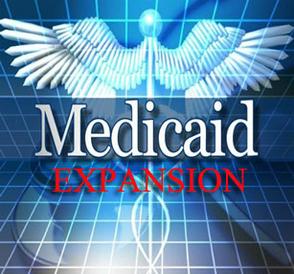In 2013, the Illinois General Assembly and Gov. Pat Quinn wisely made a decision to expand Medicaid under the Affordable Care Act and thus help all low-income Illinoisans get and stay healthy. The Chicago Tribune’s February 2, 2015 editorial called Illinois’ Medicaid expansion law a “debacle” and a “failure.” In fact, the expansion is an enormously positive achievement.
It is true that the consultants hired by the state five years ago “guesstimated” that 342,000 adults would become eligible for the Medicaid expansion. That enrollment figure now stands at 541,000. The higher enrollment demonstrates how difficult it has been, historically, to count low-income adults, even though they were cared for at various times in emergency rooms, homeless shelters, mental health clinics, social service agencies, and jails.
The higher-than-expected enrollment demonstrates just how well the outreach efforts by state agencies—in collaboration with community organizations, health clinics, and hospitals—have worked. It also recognizes the important initiative by the Cook County Health & Hospitals System, which created a large health plan called CountyCare and enrolled 100,000 adults early under a special waiver—a number that was not anticipated in the original estimate.
Yes, this will cost the state somewhat more after 2017. But the federal government now is paying 100 percent of the Medicaid costs for these adults, and that will ratchet down to 90 percent by 2020 and stay at that level. We also included a safety valve in the Illinois expansion law: if the federal match falls below 90 percent, the Medicaid eligibility for these adults will end within three months. In that instance, the Governor and General Assembly will be able to reconsider their options.
This is the best deal ever offered by the federal government to Illinois and other states. For this reason, even the Republican states that have not expanded Medicaid are having second thoughts.
Already there are many wonderful stories of adults getting much-needed healthcare, sometimes for the first time in their lives. But this is not just altruism; healthier Illinois residents mean a healthier Illinois bottom line. The availability of high-quality healthcare under the Medicaid expansion means 541,000 more low-income residents will be able to get and stay healthier—and hopefully avoid admissions into costlier hospitals and nursing homes. This is straightforward math: not paying on the front end translates to paying more on the back end.
Instead of criticizing the expansion, we should be celebrating the huge influx of federal money that provides health coverage for the previously uninsured; reduced uncompensated care (that is otherwise passed on to paying patients and taxpayers); and the positive effects on both the health and economy of Illinois.
This is no failure. It is nothing less than long-term success.
Julie Hamos was the Director of the Illinois Department of Healthcare and Family Services from 2010 to early 2015. This article appeared as an op-ed in the February 5 edition of the Chicago Tribune.

